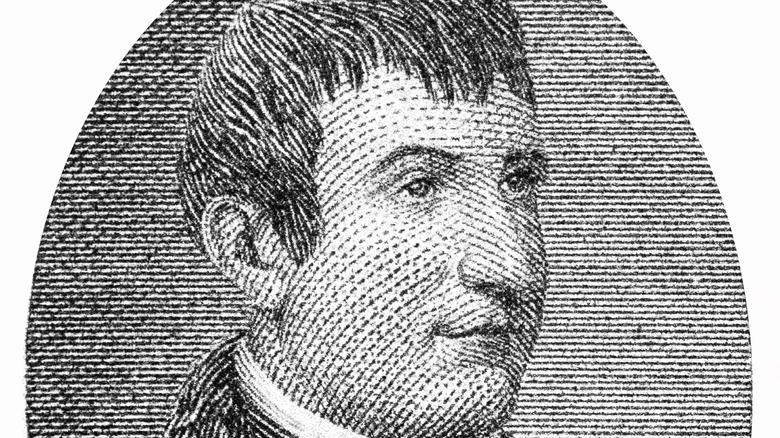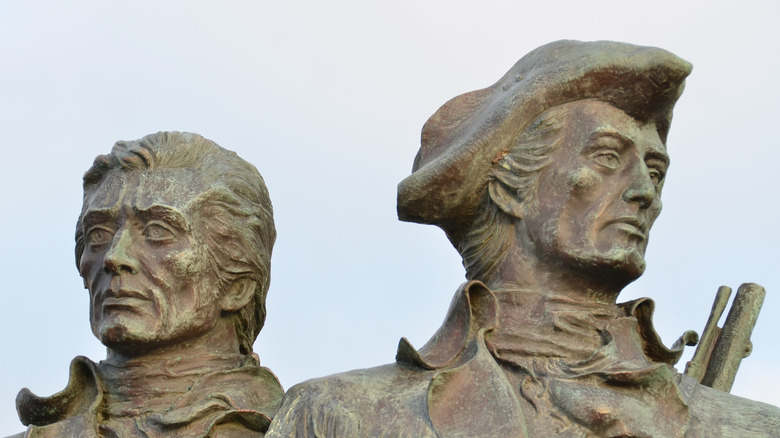The Mysterious Death Of Meriwether Lewis
Meriwether Lewis is best known as half of the historical exploration duo Lewis and Clark, who were tasked by United States president Thomas Jefferson to lead an expedition through the previously uncharted Louisiana Purchase territory. From 1804 to 1806, Meriwether Lewis and William Clark trekked over 8,000 miles, per History, starting in St. Charles, Missouri on the Missouri River and ending in Fort Clatsop in Astoria, Oregon. Lewis was born in 1774 near Charlottesville, Virginia, according to Britannica. He had a successful military career starting with his role in the Virginia militia suppressing the Whiskey Rebellion in Pennsylvania in 1794; he went on to join the army and rose quickly from ensign to captain and eventually served as President Jefferson's secretary and aide-de-camp.
Jefferson assigned Lewis to lead the expedition due to his extensive frontier skills as well as intelligence and military service. After traveling to Philadelphia to study botany, medicine, astronomy, and zoology in preparation for the trip, he recruited his friend William Clark to co-lead the trip with him. Clark primarily assembled the Corps of Discovery, as they called the expedition's members, which consisted of over two dozen men. The western half of the United States was so unknown by colonists at that point in history that Lewis mused that the expedition might find wooly mammoths or giant mountains of salt. He did go on to note and describe 178 species of plants and 122 animals, including coyotes and grizzly bears, that had been previously unknown to white settlers.
Meriwether Lewis' death was mysterious and violent
Per Britannica, at the conclusion of the expedition, Jefferson rewarded Lewis with money, land, and, eventually, appointed him governor of the Territory of Upper Louisiana. He clashed with territorial secretary Frederick Bates over Native American and territorial affairs. He also encountered angry members of the Osage nation who protested treaties and land management and disappointed his superiors with his infrequent communication and poor management skills when it came to land, mines, and trade. His credit was destroyed by the Secretary of War's refusal to honor his expense accounts.
In 1809, Lewis decided to travel to Washington, D.C. to explain his expenses and clear his name. He stopped on October 11 near what is now Hohenwald, Tennessee and, that night, Lewis mysteriously died from several gunshots to the head and chest. He was 35 years old. The question of whether Lewis died by suicide or murder has never been answered and remains controversial. Some believe Lewis suffered from depression due to the difficulties he had as a governor as well as alcohol abuse and his failure to marry or publish his accounts of the Lewis and Clark expedition, which led him to suicide. Others suggest that thieves or political enemies murdered him, and still others believe his death was accidental.

